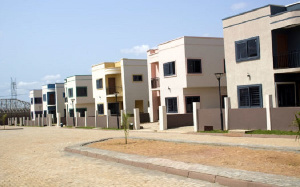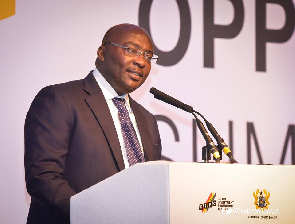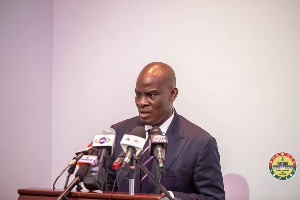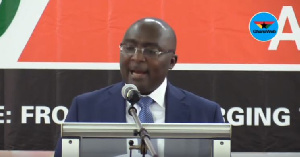5 steps to owning your first house in Ghana

I was listening to Sarkodie’s ‘Hand to Mouth’ song recently. Believe me, the 3mins 15 secs song which appeared to be targeted at the youth was full of wise nuggets for the old; the rich and the poor also.
He bemoaned the phenomenon where people at their prime, cultivate an extravagant lifestyle. Instead of saving and investing in lands and owning homes to secure their future, they prefer to own vehicles and rent in prime locations at a huge cost.
Ghana’s national daily minimum wage as of January 2020 is 11.82 cedis (U.S. $2.06). The average Ghanaian may not earn much but spends a lot on rent.
The award-winning musician stresses that irrespective of the work that one does; be it a coconut seller, taxi driver or banker; saving the little to invest in land(s) and one’s home, breaks the poverty cycle.
The reality of many Ghanaians is that they are stuck in this cycle of using most of their earnings for rent. Many hope to end this phenomenon, yet, the hustle is real! D for ‘Daben?’ (‘When’ in Akan language).
In this week’s edition of Real Estate 101, I share with you five steps to acquiring your first house in Ghana.
● Have in mind exactly what you want: Having a choice when it comes to building or acquiring your first house is everything. In order to save towards getting your first house, you will need to sit and ask yourself a few questions such as; what do I want? How do I envision my house? Where will it be located and what options are available? Do I buy or build from scratch?
This helps you examine yourself to know how ready you are. Remember the goal is to help you narrow your options and plan within your budget.
Your first house is not meant to be grandeurs, but something simple and functional to relieve you from the renting stress as you plan your life. You don’t want to start a project and be left dry middle way or get caught up with a mortgage obligation you can’t fulfil.
However, if you have the means, there is always room to go big if you prefer an “East Legon” or a “Trasacco” kind of apartments. The most important thing is to make a choice that suits a lifestyle you can afford.
● Research: Knowing what you want is one and knowing how to get what you want is another. After carefully thinking through what your first house ought to be, you need to research to understand what it takes to get it done.
It’s not easy to build in Ghana, even the wealthiest people end up getting their money locked up in projects that never see the daylight simply because they failed to ask the right questions or spent lots of money in court for purchasing a property that wasn’t litigation free.
As a young person hustling, this is the last thing you would ever want to happen to you. Therefore, research online, make that call, talk to friends, family members people who have built and learn from their experiences and mistakes. You may not have everything perfect, but with guidance and the right information, you will see your first project through.
● Talk to a Mortgage Company: Most Ghanaians do not see the need to consult a mortgage company before acquiring a house due to perceived risks.
A mortgage company primarily gives loans to help individuals acquire landed property. The amount plus interest is spread over years to enable the individual to make payment while enjoying the facility. The initial payment is mostly high.
When considering a mortgage be sure to choose which currency to pay in. Mortgages in Ghana is usually priced in dollars. However, if you want to pay in Ghana cedis, be ready to pay higher than usual anytime the cedis depreciates.
In Ghana, banks and other financial institutions exist to help you secure a loan to build or buy the home of your dreams. Example of such financial institutions include Absa, First National Bank, Fidelity Bank, Calbank, Bond Financial Services, Delax Financing etc.
These banks also partner with Real Estate Companies like CBC Properties to offer mortgages too. Do not hesitate to walk into any mortgage company to better understand their terms or policies when it comes to financing your first house.
● Start saving or have an investment: Ideally, you should have started saving years ago. Nevertheless, it’s never too late to start saving after getting adequate information on building or acquiring your first home.
Form a habit of spending on what you need and not what you want. Yes, that is the golden rule to finance anything in life. Putting money aside for a particular purpose can be hard for many, therefore better to invest in bills, bonds, stock or things that mature at a discounted rate.
The idea is to know exactly how much you will be getting over a specific period. Whether you decide to build or purchase, savings give you a head start to settle and secure the property.
● Deal with the right person: As you research to buy or build your first home remember to run background checks on people you want to deal with as you wouldn’t want to deal with a crook who will end up taking your money. Talk to real Estate brokers/agents, surveyors and lawyers to ensure your landed property is litigation free.
Mortgage companies are your surest bet when it comes to building or acquiring your first house. Ghana Association of Real Estate Brokers (GAR) and Ghana Real Estate Developers Association (GREDA) can also help you with credible brokers and developers too.
Nonetheless, trust your instincts sometimes, if you don’t feel right or are super excited about a property, understand why you feel so. It might save you a lot of trouble.
Source: Chris Nii Abbosey, Contributor






